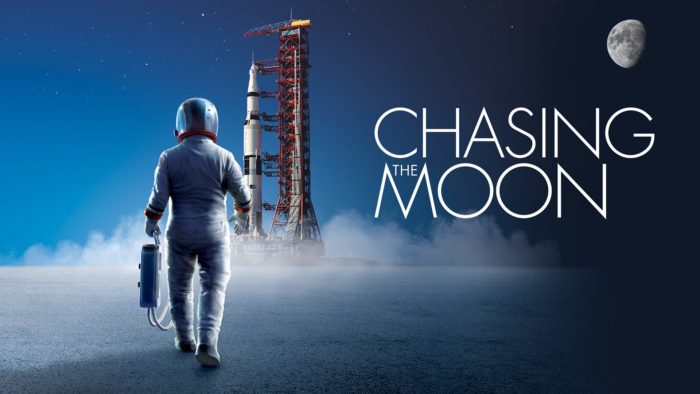UK TV review: Chasing the Moon
Review Overview
Context
8Craft
8David Farnor | On 21, Jul 2019
If moon landings are your thing, then the last month of TV has been a veritable small screen paradise, with Apollo 11-themed programmes touching down left, right and centre. There’s the straight-laced ITV documentary summing up the whole thing in 60 minutes. There’s the experimental BBC film that unearths new audio recordings from the mission that add a fresh sense of urgency to their achievement. There’s Channel 4’s ambitious undertaking to retell events in near-real-time over a week. PBS, though, has managed to do something else entirely: zoom out away from the moon’s surface to consider the wider context. The result is a multi-episode history lesson that starts long before the moon landing and continues to look past it to how it has inspired generations since – if you’re going to watch one six-hour documentary about Apollo 11, make it this one.
We begin in the 1950s, when Sputnik 1 was launched by the Soviet Union, sparking panic on US soil as they realised that not only was Russia now capable of letting off long-distance rockets – a threat of nuclear proportions – but also that America was about to lose face on an international scale. “We couldn’t figure out the spelling of Sputnik. We couldn’t figure what Sputnik meant,” notes one American, wryly.
But while the Cold War is a widely known factor in fuelling the great space race, director Robert Stone makes the most of his runtime to unearth lesser known elements in this explosive period of human history: President John F. Kennedy, we learn, was insistent on having an African-American astronaut in the space programme. After all, if putting a man in the middle of a satellite caught the interest of the US public, putting an African-American man in the frame could mark a giant leap forwards for racial equality. It was a noble idea that powered a backlash in Alabama – so much has changed, yet so little has – and alas, it didn’t come to fruition, a tragic note overshadowed by the tragic assassination of Kennedy (who went on to give his name to Cape Canaveral).
There’s time, as well, to celebrate the little successes along the long journey to our lunar cousin: while the Apollo 11 flight would take 112 hours, it took 11 years for America to get there in the first place, and we see America’s awe at Yuri Gagarin’s groundbreaking orbit of the planet, eventually equalled by John Glenn in 1962. That’s offset by the disastrous failures that paved the way for the Apollo endeavour, with the Apollo 1 mission relived with harrowing audio clips of its fatal, unforeseen outcome. The underlying sense of danger and risk gathers increasing heft over the six episodes, with even the wife of Frank Borman, an astronaut on the successful Apollo 8, barely able to watch the TV as her husband blasts off in 1968 without incident. (Their crew’s eventual reading from Genesis over images from the moon is dazzling and poetic even today.)
By the time we get to Buzz Aldrin, Neil Armstrong and Michael Collins, the oft-broadcast clips of their press conferences, and Collins’ comments on what it was like to be up away from the surface during Armstrong’s iconic steps accrue added weight and importance, born out of the fresh understanding of what led up to them all (from NASA vetoing working with the Russians to Kennedy being concerned about his re-election chances). Stone pieces together his epic tableau with minimal talking heads and the maximum possible reliance on voices to accompany archive footage – a smart approach that makes for a more compelling, immediate experience.
The result is not just a portrait of the moon landing, or even the individuals involved – we get a welcome chance to consider the role of women in NASA, and those fighting sexism to contribute more visibly to the effort – but a snapshot of a country (and, by extension, humankind) as it sought to expand the horizons of its very existence.
Chasing the Moon is available on BBC iPlayer until December 2019.


















